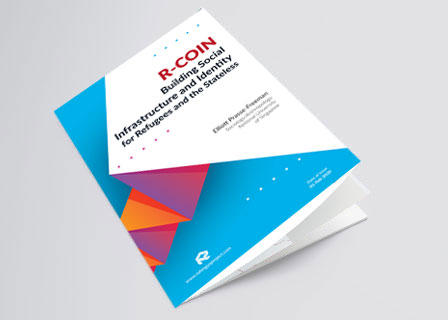ABSTRACT
The report provides an assessment of a pilot project led by the Rohingya Project (RP), a Malaysia-based refugee-led non-profit social enterprise. The pilot has entailed the valorization and circulation of a blockchain-backed crypto-token called “R-Coin” (short for Refugee-Coin) to 35 participating refugee volunteers. R-Coins were distributed to refugees upon completion of voluntary community-based social services: teaching, cleaning, counseling, etc. The earned R-Coins were eligible for exchange for different ‘prizes,’ from the relatively trivial (Starbucks food/beverage cards) to the essential (ATM Cards; Health Insurance). As Malaysian law prohibits refugees from working, and health services are often prohibitively expensive, R-Coin hence addresses an immediate need by delivering critical goods. R-Coin has medium- and longer-term goals as well, however, including improving skills, integrating refugees into markets, developing networks (medium term), and using the digital record created by the transfer of an R-Coin as a way to build a refugee’s personal identity (longer term). This report describes the pilot’s processes and identifies challenges and potential solutions for roadblocks to efficient and more complete uptake of the R-Coin (of the 35 participants there was significant variation in the engagement with volunteer activities).
The report then turns to assessing the medium-term objectives, finding that while these objectives remain mostly potential for the R-Coin, the project has allowed RP to more clearly identify those opportunities and to strategize on how to achieve them. Finally, the report discusses the longer-term objective immanent but unrealized thus far in R-Coin: using it as a ‘first step’ in building a digital identity, one that can give refugees new and valuable opportunities (including ‘financial inclusion’: bank accounts and loans). In this sense while many recent techno-governance innovations promise to improve refugee lives but succeed in more efficiently controlling them, RP has appropriated these technologies and redeployed them in an effort to transform, rather than manage, refugee lives. The paper concludes by outlining some procedures in an expansionary phase of R-Coin that could help this transformation materialize.

